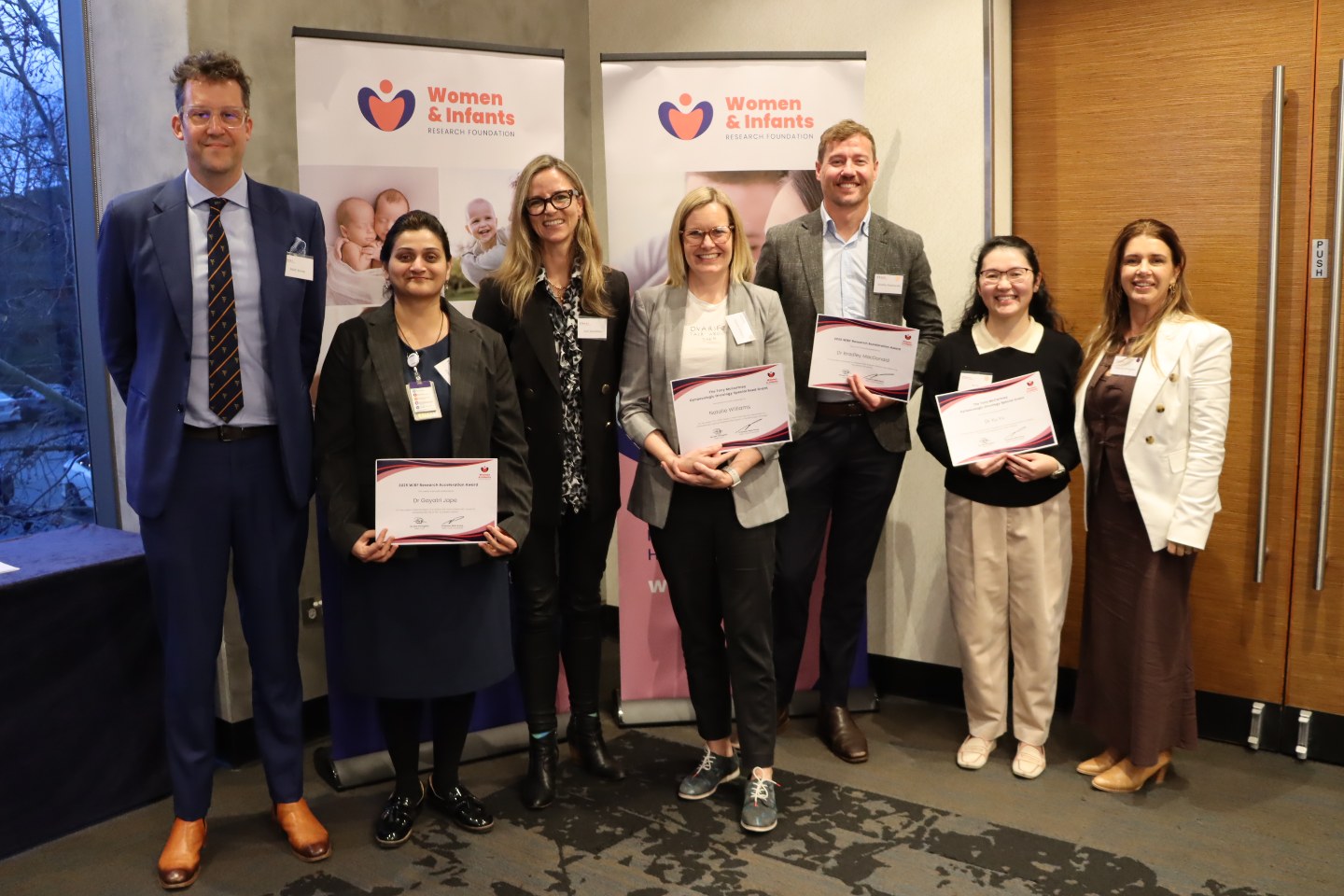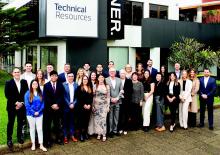The Women and Infants Research Foundation has furthered its commitment to improving the health of women, babies and families by awarding $260,000 to Western Australian research projects.


The Women and Infants Research Foundation (WIRF) has furthered its commitment to improving the health of women, babies and families by awarding $260,000 to Western Australian research projects.
The new funding will support five innovative projects spanning ovarian cancer, chemotherapy-related side effects, childbirth trauma, rare diseases and neonatal health.
The Tony McCartney Gynaecologic Oncology Special Grants and the Research Acceleration Awards were presented at WIRF’s premier scientific event, the WIRF Scientific Dialogue, on September 5, which also aligned with the final day of Women’s Health Week.
The Tony McCartney Gynaecologic Oncology Special Grant, valued at $100,000, was awarded to Curtin University senior research fellow Dr Yu Yu for her project Developing a new treatment for chemotherapy resistant ovarian cancer using bispecific SLIT-ROBO antibody.
Ovarian cancer remains one of the deadliest cancers affecting women, with high-grade serous carcinoma often relapsing after initial treatment.
Dr Yu’s team has identified a little-studied cell signalling pathway, known as SLIT-ROBO, that may enable cancer cells to survive chemotherapy.
By testing a new bispecific antibody treatment in patient-derived tumour models that targets the SLITs or ROBO proteins, this research aims to overcome chemoresistance and offer new hope for women whose cancers no longer respond to standard treatment.
"These projects are addressing some of the most urgent and under-recognised challenges in women’s and family health." WIRF chief scientist Professor Matt Kemp
Three WIRF Research Acceleration Awards, each valued at $45,000, were presented to Dr Bradley MacDonald, Dr Kelli MacMillan and Dr Gayatri Jape.
Dr MacDonald is a paediatrician and clinical trial lead at Perth Children’s Hospital’s Clinical Centre of Expertise for Rare and Undiagnosed Diseases, otherwise known as Rare Care Centre.
Dr MacDonald was awarded funding for his project Developing an Adaptive Rare Diseases Platform Trial (ARDaPT) for therapeutic trial access.
This project aims to improve clinical trial access for the 63,000 children in WA living with rare diseases by establishing scalable, regulatory-approved infrastructure for faster and more equitable treatment options.

WIRF's annual Research Acceleration Awards are investing in the future of women and babies.
Meanwhile, King Edward Memorial Hospital clinical psychologist and Murdoch University senior lecturer Dr MacMillan was awarded funding for her project Screening for childbirth related post-traumatic stress disorder at an Australian women’s tertiary hospital.
This study is the first of its kind and aims to improve perinatal service delivery, maternal mental health and infant outcomes.
Dr Jape is a neonatal paediatrician at King Edward Memorial Hospital and was awarded funding for her project Implementation of a clinical risk score (Check-NEC score) for predicting the risk of NEC in preterm infants.
Necrotising enterocolitis (NEC) is a devastating bowel disease affecting premature babies with high rates of mortality and long-term complications.
This project will evaluate a predictive clinical tool to enable earlier intervention and better outcomes for vulnerable newborns.
“By investing in these researchers, we are investing in better futures for women, babies and families.” Professor Matt Kemp
A $25,000 Tony McCartney Gynaecologic Oncology Special Seed Grant was awarded to a nurse researcher in gynaecology at King Edward Memorial Hospital Natalie Williams for her project The CIPNEX Study: A Hand-Foot Exercise Intervention for Chemotherapy-Induced Peripheral Neuropathy in Gynaecologic Oncology.
Chemotherapy-induced peripheral neuropathy affects up to 70 per cent of women undergoing treatment for ovarian and other gynaecological cancers, leading to pain, numbness, falls, and reduced quality of life.
With no effective medical treatments available, this project will co-design, test and evaluate a sustainable hand-foot exercise program.
The end goal is to provide women with practical self-management tools to reduce symptom severity and improve daily functioning.
WIRF chief scientist Professor Matt Kemp said the recent funding reflected WIRF’s commitment to tackling pressing health challenges affecting women, babies and families via world-class research.
“We congratulate each of our award recipients on their outstanding projects,” Professor Kemp said.
“These projects are addressing some of the most urgent and under-recognised challenges in women’s and family health; from ovarian cancer relapse and the long-term impacts of chemotherapy, to childbirth trauma, neonatal disease, and the devastating inequities facing families affected by rare diseases.
“By investing in these researchers, we are investing in better futures for women, babies and families.”
The WIRF Research Acceleration Awards, now in its third year, have been made possible with the generous support of the Stan Perron Charitable Foundation and the Bass Family Foundation.
The Tony McCartney Gynaecologic Oncology Special Grant is named in honour of Dr Tony McCartney, who was WA’s first gynaecological cancer specialist and invented a device known as the McCartney tube, which simplified keyhole hysterectomies.
















